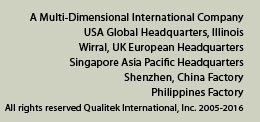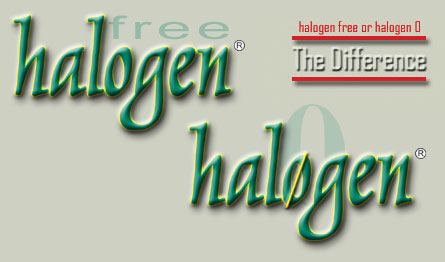|
|
|
| |






 |
|
Lead and Halogen materials have been used by the entire electronics industry for decades. Concerns have been steadily on the rise regarding their impact on health and the environment. Industrial concerns including long term reliability, robustness and wetting create other types of issues for the developers. As a soldering material manufacturer, we are addressing and resolving such issues. The difference between Qualiteks Halogen Free and Halogen 0 is that Qualiteks' Halogen Free products adhere to the adopted levels developed by the International Electrotechnical Commission (IEC) as acceptable in final assembled product for the most robust Halogen free formulations. These levels are: <900ppm chlorine, <900ppm bromine, <1500ppm total halogens Qualiteks' Halogen 0 products exceed the acceptable industry standards and contain 0% halogens. The levels of Qualiteks' Halogen 0 formulations are 0% ppm total halogens. Click on the below formulation number for detailed product technical data. |
|
QUALITEKS HALOGEN FREE AND HALOGEN 0 FORMULATIONS |
|
| SOLDER PASTE: | 230 RMA HF | 618D No-Clean Syringe HF | 792 Water-Soluble ZH | 798LF Water-Soluble HF | 820 No-Clean ZH | 825 No-Clean HF | 862 No-Clean HF | 863 No-Clean HF | 866 No-Clean ZH | 875 No-Clean HF | 888 No-Clean HF | 889 No-Clean HF | |
|
| PASTE FLUX: | PF800UV | PF820ZH | PF825HF | |
|
WAVE SOLDER FLUX: |
|
| CORED SOLDER WIRE: | NC600 No-Clean Wire HF | |
|
WHY ARE HALOGENS HARMFUL? WHO IS THE (IEC) INTERNATIONAL ELECTROTECHNICAL COMMISSION? International Standards, and their use in technical regulations on products, production methods and services play an important role in sustainable development and trade facilitation through the promotion of safety, quality and technical compatibility. The benefits that are derived are significant. Standardization contributes to the basic infrastructure that underpins society including health and environment while promoting sustainability and good regulatory practice. The international organizations that produce International Standards are the International Electrotechnical Commission (IEC), the International Organization for Standardization (ISO) and the International Telecommunication Union (ITU). IEC covers electrotechnology and related conformity assessment, ITU covers telecommunications and ISO covers nearly all other technical fields, a number of service sectors, management systems and conformity assessment. International Standards, or national or regional adoptions of International Standards, assist in the operation of domestic markets, and also increase competitiveness and provide an excellent source of technology transfer. They play an integral role in the protection of consumers and the environment. With the increasing globalization of markets, International Standards (as opposed to regional or national standards) have become critical to the trading process, ensuring a level playing field for exports, and ensuring imports meet internationally recognized levels of performance and safety. Standards can be broadly sub-divided into three categories, namely product, process and management system standards. The first refers to characteristics related to quality and safety for example. Process standards refer to the conditions under which products and services are to be produced, packaged or refined. Management system standards assist organizations to manage their operations. They are often used to help create a framework that then allows the organization to consistently achieve the requirements that are set out in product and process standards. To learn more about the International Electrotechnical Commission (IEC) and the commissions mission, objectives and standards, click the following link | http://www.iec.ch/about/mission-e.htm | Qualitek International, Inc. has been working developing and presenting soldering solutions since 1980. Qualitek pioneered no-clean soldering materials in 1980, positioned itself at the forefront of technological innovations with the development of suitable lead free materials in 2000 and now in 2009 would like to present our halogen free and halogen 0 products. Evaluation samples are readily available and our local technical support is unsurpassed. We will recommend product, send samples and help you gain success in this transitional process. Qualitek has helped many customers through the no-clean process, the lead free implementation and we are ready to help you through to a better, safer reliable halogen free product.
|
|
|
|